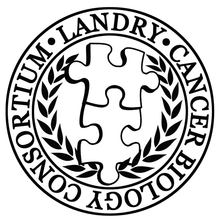2022 |
Applying the Concepts from Translational Discoveries |
| Translational research has many definitions. Broadly, it is considered any investigation that can lead to clinical impact. In this course, we will use bench to bedside vignettes as a backdrop for interactive discussions. We will emphasize cancer dependency, targeted therapy, and resistance mechanisms to help facilitate problem-solving discussions. In particular, we will walk through the discovery of BCR-ABL inhibitors for chronic myelogenous leukemia and next generation anti-androgens for prostate cancer. The course will include group discussions and assignments designed to reinforce the key concepts from each session. |
Cancer Metabolism: The Metabolomics Perspective |
|
The field of cancer metabolism has grown tremendously in the past decade, contributing major advancements in our understanding of how to diagnose and treat tumors. Despite this, some of the tools required to study cancer metabolism remain out of reach for many labs. This is particularly true for metabolomics, as it requires deep prior knowledge and sophisticated instrumentation. This course is designed to acquaint participants with principles and practice of cancer metabolism from the perspective of metabolomics. The approach will be multifaceted. Participants will become familiar with fundamental topics in cancer metabolism directly presented by top researchers in the field. A discussion-based approach on literature review will instruct participants on the essential cancer metabolism toolkit, method advancements and limitations. Crucially, participants will get a first-hand theoretical knowledge and practical experience on designing, analyzing, and presenting mass spectrometry-based metabolomics experiments. This two-part nanocourse aims to bridge this gap; inviting interested students/postdocs/instructors to become familiar with the basic principles of cancer metabolism and metabolomics theory and practice. The course will be offered as a two-part series. Participants can choose to attend either first, second or both parts of the nanocourse series, based on previous experience and interests. Part One will introduce the cancer metabolism fundamentals, offering a series of keynote lectures that will cover major metabolic pathways perturbed in cancer, and journal club discussions facilitated by Boryana Petrova and/or postdocs on tools and methods used to study cancer metabolism in vivo and in vitro. Part Two of the course will introduce a major tool in the cancer metabolism field - metabolomics by LC-MS. Participants will learn how to acquire, analyze, visualize, and present metabolomics data. This part will involve a “hands on” session and will provide an opportunity to incorporate course participants’ specimens of interest. Pre-collected data will be available for online participants as well. |
2021 |
Single Cell and Spatial Technologies |
|
Single cell and spatial technologies allowed us to surpass granularity and context barriers, revolutionizing cancer research. They permit the investigation of cellular transcriptional programs, tumor clonal evolution, or immune cell receptors in unparalleled resolution, while spatial methods enable the fine-grained characterization of the tumor microenvironment and cell-cell communication in situ. In this course we will focus on existing and upcoming technologies and how they can shape the scope of basic and translational cancer research. We will start with a general introduction to the methods, their capabilities, and shortcomings, and then proceed to discuss cutting-edge applications and still open research questions. |
2020 |
Cancer Immunotherapy |
|
Immunotherapy has revolutionized cancer treatments. It has resulted in complete and durable responses in several malignancies including advanced melanoma and non-small cell lung cancer, among others. However, responses remain heterogeneous among patients, and some experience serious side effects. In this nanocourse, we will discuss the two major types of cancer immunotherapy: checkpoint blockade and engineered T cells. We will discuss the mechanisms of action, the clinical challenges, and potential approaches to further advance the field. Each of the four sessions will conclude with a ~20-30 min question and discussion, and a brief homework assignment. |
Toxicity of Cancer Therapy - Lessons from Metabolomics |
|
Chemotherapy is the cornerstone of modern cancer therapy and is an effective treatment, but is often accompanied by toxicity. In this course we will discuss current chemotherapies and their drawbacks, and we will learn about cutting edge advances in cancer treatment and future goals for the field. We will focus on brain toxicity following chemotherapy, a common condition that influences approximately 70% of all chemotherapy-treated cancer patients. Additionally, this course will provide a general introduction to metabolomics and different brain pathologies documented in response to chemotherapy. To provide a hands-on example of the study of this condition we will apply metabolite profiling on CSF samples from chemotherapy-treated mice. Course participants will observe a demonstration of rodent CSF collection, will extract the metabolites from the samples themselves, and will analyze the samples using LC/MS. Subsequent lectures will also include a discussion on improving drug targeting and delivery into the brain. Registered participants will use the experimental design and analysis methods presented in Session 1 to analyze metabolomics data in Session 2. They will write a half page “Methods” and “Results” sections that summarize the experiment. |
2019 |
Extracellular Vesicles in Human Pathologies |
|
Although most research efforts focus on cancer therapeutics, advances in cancer diagnostics provide some of the most significant reductions in disease death rates. One of the more exciting developments in cancer diagnostics is the investigation into cancer-specific extracellular vesicles, also known as exosomes. These vesicles are fragments of cancer cells that are shed into the body’s circulation and can be detected in “liquid biopsies,” such as a blood draw. The genetic material and proteins contained in these vesicles can then be traced to cancer cells elsewhere in the patient’s body, reducing the need for invasive biopsy procedures. Just as a CSI lab can detect whether a criminal has been at the crime scene based on a trace of hair, we are starting to be able to detect whether cancer is present in a patient even if the tumor itself is hidden. Directed by Professor Marsha Moses, the Julia Dyckman Andrus Professor of Surgery, and Golnaz Morad, a senior graduate student in the Moses lab, this nanocourse comprised three days: the first focused on the how extracellular vesicles are being studied in the laboratory, the second discussed how they are being used in a clinical setting, and the third allowed students a chance to design and receive feedback on their own research plan. Featuring speakers from both academia and industry, the course’s format encouraged participants to collaborate at that intersection of translational medicine and turn ideas into concrete experiments. |
Scientific Presentation as a Performing Art |
|
Being a successful scientist begins with experiments at the bench, but does not end there. Scientists must effectively communicate their discoveries as well, whether teaching students in the classroom, discussing with peers at a conference, or sharing with the public at large. However, the typical university science class rarely focuses on developing public speaking skills. This nanocourse was developed to address this need. Presented by Professor Davie Van Vactor, one of the faculty co-directors of the Landry Cancer Biology Consortium, Erika Bailey, head of voice and speech at the American Repertory Theater, and Ryan Lee, the curriculum fellow for the Landry Cancer Biology Consortium, this two-day nanocourse combined techniques from the world of drama with the importance of scientific storytelling. The first day of the course included a discussion and demonstration of various vocal techniques; the second day allowed students to give mock presentations on topics of their choosing and receive one-on-one feedback from Ms. Bailey, Professor Van Vactor, and Dr. Lee. The course hit its 24-student enrollment cap almost immediately after being opened, attesting to the demand among students for this type of training. Despite only being a brief course, students reported a significant increase in their confidence and self-evaluated abilities, and when surveyed at the end, the students consistently asked for more. An interview with Erika Bailey on her approach to coaching students is available here. |
2018 |
Non-Coding RNAs in Cancer |
| Cancer research is progressing at such a rapid rate that textbooks and courses often lag behind the cutting edge. Short, two-day workshops called nanocourses can keep students up to date on hot topics. One such topic is the rapidly evolving field of non-coding RNAs in cancer, which was the focus of a nanocourse led this year by Frank Slack, the Shields Warren Mallinckrodt Professor in the Department of Pathology and Director of the Institute for RNA Medicine at Beth Israel Deaconess Medical Center. Whereas biology traditionally focuses on the steps whereby information stored in DNA is conveyed via an RNA message to be translated into a protein effector, the growing study of non-coding RNAs has indicated a much wider role for RNA than simply as an intermediate message. Moreover, RNAs that serve in a regulatory capacity are increasingly understood to be affected in cancer and may even represent a different avenue of cancer therapy. |
2017 |
Single Cell Sequencing: Experimental Design, Analysis, and Practical Applications |
| This 2017 nanocourse, directed by Peter Kharchenko, Assistant Professor of Biomedical Informatics at Harvard Medical School, provided a general introduction to both RNA- and DNA-based single-cell sequencing, relatively new techniques that have dramatically expanded our knowledge in a wide range of fields from microbiology to cancer biology. |
2015 |
Genomic Instability and Cancer |
| High fidelity DNA replication, coupled with effective DNA-maintenance machinery, is fundamental to cell growth and division. Inherent to many human cancer cells, when this process becomes dysregulated, genetic alterations ranging from nucleotide-level changes to chromosomal translocations and aneuploidy can occur. This nanocourse will begin by exploring the history of two lines of research and the intersection between them that informs modern cancer biology. The first are studies of genetic instability in model organisms, starting with the work of Boveri and ending with the discovery and analysis of DNA repair pathways and cell cycle checkpoints. The second is the gradual appreciation that genetic instability plays a major role in cancer, beginning with the realization that cancer required multiple mutations, moving on to Nowell’s seminal work on cancer progression, and finishing with a description of the biology of tumor suppressor genes. We will continue with a discussion of the mechanisms leading to the evolution of karyotypes with implications for cancer, congenital disease, and likely organismal evolution. The focus will be on newly discovered mutational processes that can generate massive chromosome rearrangements “all-at-once” and are curiously localized to one or occasionally a few chromosomes. A review of recent technical progress in combining cellular imaging with single cell genomics, enabling mechanistic studies of these phenomena, will be included. Finally, we will explore the interplay between evolutionary and spatial dynamics at the surfaces of evolving three-dimensional cell masses, such as tumors. A crucial aspect is the effect of “inflation” on gene fixation at the frontier of expanding tumors. Key dimensionless parameters controlling the survival probability in the limit of small selective advantage will be identified, showing that inflating spherical cell masses can enhance mutant survival probabilities by factors of 100 or more, compared to cell masses which are merely “treadmilling”, i.e. those where the radius remains constant in time. |

